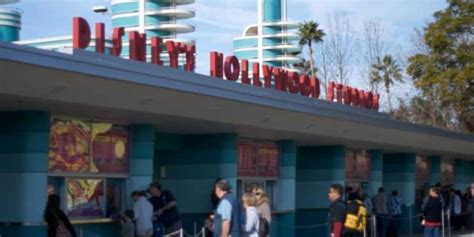
Shakira’s highly anticipated concert at Fenway Park in Boston was abruptly canceled just hours before showtime on Sunday, leaving thousands of fans disappointed and scrambling for answers. Live Nation, the concert promoter, cited logistical issues as the reason for the last-minute cancellation.
The announcement, delivered via social media and email, stated: “Due to logistical issues, tonight’s Shakira concert at Fenway Park has been cancelled. Refunds will be automatically processed at the point of purchase.” The sudden news sparked immediate outrage and frustration among ticket holders who had traveled from various locations and made significant arrangements to attend the performance.
The specific nature of the logistical issues remains unclear, and neither Shakira nor her representatives have released an independent statement elaborating on the situation. This lack of detailed explanation has fueled speculation and intensified the disappointment felt by fans. Many expressed their anger and demanded more transparency regarding the reasons behind the cancellation.
The Fenway Park concert was part of Shakira’s world tour, her first major tour in several years, making the cancellation particularly devastating for her Boston-area fanbase. Fans had eagerly anticipated seeing the Colombian superstar perform her iconic hits live.
While refunds are being automatically processed, many fans lamented the non-refundable expenses they incurred, such as travel and accommodation costs. The financial impact, coupled with the emotional letdown, has left a lasting negative impression on many concertgoers.
The sudden cancellation raises questions about the planning and execution of large-scale events and the potential impact on fans when unforeseen issues arise. This incident underscores the importance of contingency plans and clear communication to mitigate the negative consequences of such disruptions.
Fan Reaction and Aftermath
The immediate reaction to the cancellation was overwhelmingly negative, with social media platforms flooded with complaints and expressions of dismay. Fans shared stories of traveling long distances, booking hotels, and arranging childcare, all rendered pointless by the last-minute announcement.
“I’m beyond disappointed. I flew in from Atlanta just to see Shakira,” one fan tweeted. “Now I’m stuck with a hotel bill and no concert.”
Another fan posted, “This is unacceptable! We deserve an explanation. Logistical issues? What does that even mean? We paid good money for these tickets.”
The anger was further compounded by the lack of clear communication from Live Nation and Shakira’s team. Many felt that they were left in the dark, with no immediate explanation or apology. This lack of transparency only fueled the sense of frustration and betrayal.
Several fans also raised concerns about the refund process, questioning how long it would take to receive their money back and whether they would be compensated for non-refundable expenses.
The cancellation also impacted local businesses in the Fenway area, which had anticipated a surge in revenue from concertgoers. Restaurants, bars, and hotels all experienced a drop in business as a result of the canceled show.
Live Nation’s Response and Previous Incidents
Live Nation, the concert promoter responsible for the Shakira event, has faced criticism in the past for similar incidents. While the company has issued a statement acknowledging the cancellation and promising refunds, it has not provided a detailed explanation of the logistical issues that led to the decision.
“Due to logistical issues, tonight’s Shakira concert at Fenway Park has been cancelled. Refunds will be automatically processed at the point of purchase,” the statement reiterated.
This vague explanation has done little to quell the anger and frustration of fans. Many are demanding more transparency and accountability from Live Nation, calling for a more detailed explanation of what went wrong and what steps the company is taking to prevent similar incidents in the future.
Live Nation’s history of concert cancellations and logistical problems has led some to question the company’s ability to effectively manage large-scale events. Critics argue that the company prioritizes profits over customer satisfaction and that its lack of attention to detail often results in negative experiences for concertgoers.
Shakira’s Perspective and Future Plans
As of now, Shakira has not issued a personal statement regarding the cancellation of her Fenway Park concert. This silence has been interpreted by some fans as a sign of indifference, while others speculate that she may be contractually bound to allow Live Nation to handle the situation.
However, it is likely that Shakira is deeply disappointed by the cancellation, as she has expressed her excitement about returning to the stage after a long hiatus. Her world tour is a significant undertaking, and the cancellation of a major concert like the one at Fenway Park is undoubtedly a setback.
It remains to be seen whether Shakira will reschedule the Boston concert or offer any form of compensation to fans who were affected by the cancellation. Her response to this situation will likely have a significant impact on her relationship with her Boston-area fanbase.
Fans are eagerly awaiting a statement from Shakira, hoping for an explanation, an apology, and a commitment to make amends for the disappointment caused by the cancellation.
The Impact on Fenway Park and the Music Industry
The cancellation of Shakira’s concert at Fenway Park is not only a blow to fans but also a setback for the venue and the music industry as a whole. Fenway Park has become a popular destination for large-scale concerts, and the cancellation of a high-profile event like this could damage its reputation.
The incident also raises questions about the challenges of organizing and executing large-scale concerts, particularly in the wake of the COVID-19 pandemic. Logistical issues, such as supply chain disruptions, staffing shortages, and transportation problems, can all contribute to concert cancellations and delays.
The music industry is still recovering from the pandemic, and concert cancellations like this can have a ripple effect, impacting artists, venues, promoters, and fans. It is essential for all stakeholders to work together to address these challenges and ensure that live music events can continue to thrive.
Lessons Learned and Future Considerations
The cancellation of Shakira’s Fenway Park concert offers several valuable lessons for concert promoters, artists, and fans.
First and foremost, it underscores the importance of having robust contingency plans in place to address unforeseen logistical issues. These plans should include alternative venues, transportation options, and communication strategies to minimize the impact of cancellations on fans.
Second, it highlights the need for clear and transparent communication between promoters, artists, and fans. When cancellations occur, it is essential to provide timely and accurate information, explain the reasons for the cancellation, and offer solutions, such as refunds or rescheduled dates.
Third, it emphasizes the importance of fan loyalty and the need to treat concertgoers with respect and consideration. Fans are the lifeblood of the music industry, and their support should not be taken for granted. When things go wrong, it is essential to acknowledge their disappointment and offer appropriate compensation.
Finally, it serves as a reminder that the music industry is constantly evolving, and all stakeholders must adapt to changing circumstances and challenges. By learning from past mistakes and embracing new technologies and strategies, the industry can ensure that live music events remain a vibrant and enjoyable experience for all.
Detailed Breakdown of “Logistical Issues” Speculation
The ambiguous term “logistical issues” has become a focal point of fan frustration and media speculation. While Live Nation has not provided specifics, several potential factors could have contributed to the cancellation.
-
Transportation and Equipment: Transporting Shakira’s elaborate stage setup, including sound systems, lighting rigs, and other equipment, requires meticulous planning and coordination. Delays in transportation, whether due to weather, traffic, or mechanical failures, could have made it impossible to set up the stage in time for the concert.
-
Staffing Shortages: The concert industry has been grappling with staffing shortages since the COVID-19 pandemic. These shortages can affect various aspects of the event, from security and ushers to stagehands and technicians. Insufficient staffing could have made it impossible to safely and efficiently manage the concert.
-
Supply Chain Disruptions: Supply chain disruptions have become a global issue, affecting various industries. Shortages of essential materials, such as fuel, power, or specific components for the stage setup, could have contributed to the cancellation.
-
Permitting and Regulatory Issues: Large-scale events require various permits and approvals from local authorities. Delays in obtaining these permits or compliance issues could have forced the cancellation of the concert.
-
Security Concerns: Security is a top priority for large-scale events. If there were credible security threats or concerns about the ability to adequately protect concertgoers, the decision to cancel the concert would have been understandable.
-
Artist or Crew Issues: Although unconfirmed, it’s possible that issues related to the artist (Shakira) or key members of her crew could have contributed to the cancellation. This could range from illness to travel complications.
While these are just speculations, the lack of specific information from Live Nation has fueled these kinds of discussions among fans and industry observers. A more detailed explanation would likely help to alleviate some of the frustration and restore trust in the concert promoter.
The Financial Fallout for Fans and the Local Economy
The abrupt cancellation of Shakira’s Fenway Park concert has had significant financial implications for both individual fans and the local Boston economy.
-
Ticket Costs: The most immediate financial loss for fans is the cost of the concert tickets themselves. While Live Nation has promised automatic refunds, the process can take time, and some fans may have purchased tickets through third-party vendors, making the refund process more complicated.
-
Travel Expenses: Many fans traveled to Boston from out of town specifically for the concert. These fans incurred expenses for airfare, train tickets, and other transportation costs, which are often non-refundable.
-
Accommodation Costs: Similarly, many fans booked hotel rooms in Boston for the concert weekend. These bookings are often non-refundable, or subject to cancellation fees, adding to the financial burden.
-
Other Expenses: Fans may have also incurred expenses for meals, drinks, parking, and other incidentals related to the concert. These expenses are typically non-refundable.
-
Lost Wages: Some fans may have taken time off from work to attend the concert, resulting in lost wages.
The financial impact on the local Boston economy is also significant. The cancellation of the concert has resulted in a loss of revenue for restaurants, bars, hotels, and other businesses in the Fenway area. These businesses had anticipated a surge in revenue from concertgoers, and the cancellation has left them with empty tables and rooms.
The exact financial impact of the cancellation is difficult to quantify, but it is likely to be in the millions of dollars. This incident serves as a reminder of the economic importance of live music events and the potential consequences of cancellations.
Legal Considerations and Fan Rights
The cancellation of Shakira’s Fenway Park concert raises several legal considerations regarding fan rights and the obligations of concert promoters.
-
Contract Law: The purchase of a concert ticket creates a contractual agreement between the fan and the concert promoter. This agreement typically includes terms and conditions regarding refunds, cancellations, and other contingencies.
-
Consumer Protection Laws: Consumer protection laws may also apply to concert ticket purchases. These laws protect consumers from unfair or deceptive business practices and may provide remedies for fans who have been harmed by concert cancellations.
-
Force Majeure: Concert promoters often include “force majeure” clauses in their contracts, which excuse them from liability for cancellations caused by events beyond their control, such as natural disasters or acts of terrorism. However, the applicability of force majeure clauses to logistical issues is often a matter of legal interpretation.
-
Negligence: If the concert cancellation was caused by the negligence of the concert promoter, fans may have grounds to sue for damages. Negligence could include inadequate planning, failure to secure necessary permits, or failure to address known safety hazards.
Fans who have been affected by the cancellation of Shakira’s Fenway Park concert may want to consult with an attorney to discuss their legal rights and options.
The Future of Live Events and Risk Management
The Shakira concert cancellation underscores the increasing complexities and risks associated with organizing and executing large-scale live events in the post-pandemic era. Effective risk management and contingency planning are now more critical than ever. Here are key areas that event organizers should prioritize:
-
Comprehensive Risk Assessment: Before any event, organizers should conduct a thorough risk assessment to identify potential threats, vulnerabilities, and consequences. This assessment should consider a wide range of factors, including logistical challenges, security concerns, public health risks, and natural disasters.
-
Detailed Contingency Plans: Based on the risk assessment, organizers should develop detailed contingency plans to address various potential scenarios. These plans should include alternative venues, transportation options, communication strategies, and refund policies.
-
Strong Vendor Relationships: Reliable and trustworthy vendors are essential for the success of any live event. Organizers should carefully vet their vendors and establish clear contracts that outline responsibilities and liabilities.
-
Effective Communication Strategies: Clear and timely communication is crucial for managing crises and keeping fans informed. Organizers should have established communication channels, including social media, email, and website updates, to disseminate information quickly and accurately.
-
Insurance Coverage: Adequate insurance coverage is essential to protect organizers from financial losses resulting from cancellations, injuries, or other unforeseen events.
-
Coordination with Local Authorities: Close coordination with local authorities, including police, fire departments, and emergency medical services, is essential for ensuring the safety and security of live events.
-
Flexibility and Adaptability: The ability to adapt to changing circumstances is crucial for managing the risks associated with live events. Organizers should be prepared to adjust their plans as needed and to make difficult decisions in the face of unexpected challenges.
Fan Community Response and Solidarity
Despite the disappointment and frustration, the cancellation of Shakira’s concert has also fostered a sense of community and solidarity among fans. Online forums and social media groups have become spaces for fans to share their experiences, offer support, and organize collective action.
-
Shared Disappointment: The shared experience of disappointment has created a bond among fans who had eagerly anticipated the concert. They have found comfort in sharing their stories and venting their frustrations with others who understand what they are going through.
-
Information Sharing: Fans have also been sharing information and resources, such as refund policies, travel advisories, and legal advice. This collaborative effort has helped fans navigate the complexities of the cancellation and seek appropriate remedies.
-
Collective Action: Some fans have organized collective action, such as signing petitions and contacting Live Nation to demand explanations and compensation. These efforts are aimed at holding the concert promoter accountable and ensuring that fans are treated fairly.
-
Positive Outlook: Despite the setback, many fans remain optimistic about the possibility of seeing Shakira perform in the future. They have expressed their unwavering support for the artist and their hope that she will reschedule the Boston concert or offer some other form of compensation.
Shakira’s History with Boston and Fan Loyalty
Shakira has a long-standing connection with Boston, having performed in the city several times throughout her career. These past performances have helped to build a loyal fanbase in the Boston area, who were eagerly anticipating her return to the stage.
-
Past Performances: Shakira has performed at various venues in Boston, including the TD Garden and the Wang Theatre. These concerts have been well-attended and have generated positive reviews.
-
Strong Fan Base: Shakira has a large and dedicated fanbase in Boston, who appreciate her music, her artistry, and her humanitarian work. These fans have supported her throughout her career and were thrilled to hear that she was coming back to Boston.
-
Disappointment and Loyalty: The cancellation of the Fenway Park concert has undoubtedly disappointed Shakira’s Boston fans. However, many of them remain loyal and hopeful that she will reschedule the concert or offer some other form of compensation.
Shakira’s response to this situation will be crucial for maintaining her relationship with her Boston-area fanbase. If she can demonstrate empathy and understanding, and offer a reasonable solution, she can likely preserve the loyalty of her fans.
The Bigger Picture: The Challenges of Touring Post-Pandemic
The cancellation of Shakira’s concert highlights the ongoing challenges faced by the live music industry as it continues to navigate the complexities of touring in a post-pandemic world. These challenges extend beyond mere logistical issues and include a confluence of factors impacting both artists and audiences.
-
Increased Costs: Touring costs have risen significantly since the pandemic, driven by factors such as inflation, increased fuel prices, and heightened insurance premiums. These increased costs can make it more difficult for artists to tour profitably, especially for smaller acts.
-
Staffing Shortages: As previously mentioned, the live music industry is still grappling with staffing shortages, which can affect various aspects of touring, from stagehands and technicians to security personnel and venue staff.
-
Supply Chain Disruptions: Supply chain disruptions can impact the availability of essential equipment and materials needed for touring, such as sound systems, lighting rigs, and stage props.
-
Health and Safety Concerns: Health and safety concerns remain a top priority for both artists and audiences. Tour organizers must implement measures to protect against the spread of COVID-19 and other infectious diseases, such as vaccination requirements, mask mandates, and enhanced cleaning protocols.
-
Changing Consumer Behavior: The pandemic has changed consumer behavior, with some people still hesitant to attend large gatherings. This can impact ticket sales and attendance rates for live events.
-
Increased Competition: As the live music industry recovers, there is increased competition for audiences and venues. Artists must compete with a wide range of other entertainment options, including sporting events, festivals, and streaming services.
These challenges underscore the need for greater collaboration and innovation within the live music industry. Artists, promoters, venues, and fans must work together to find solutions that ensure the long-term sustainability of live music.
FAQ: Shakira’s Fenway Park Concert Cancellation
1. Why was Shakira’s concert at Fenway Park canceled?
The concert was canceled due to “logistical issues,” according to Live Nation, the concert promoter. The specific nature of these issues has not been disclosed, leading to speculation about transportation problems, staffing shortages, or other unforeseen circumstances.
2. Will I get a refund for my ticket?
Yes, Live Nation has stated that refunds will be automatically processed at the point of purchase. The timeframe for receiving the refund may vary depending on the payment method and ticketing platform used.
3. What if I purchased my ticket through a third-party vendor?
If you purchased your ticket through a third-party vendor, such as StubHub or Ticketmaster Resale, you will need to contact that vendor directly to inquire about their refund policy. Refund policies may vary depending on the vendor.
4. Will I be compensated for non-refundable expenses, such as travel and accommodation costs?
Unfortunately, Live Nation’s refund policy typically only covers the cost of the concert ticket itself. Non-refundable expenses, such as travel and accommodation costs, are generally not covered. You may want to check with your travel insurance provider or hotel to see if you are eligible for any compensation.
5. Will Shakira reschedule the Boston concert?
As of now, there has been no official announcement regarding a rescheduled concert. Fans are eagerly awaiting a statement from Shakira or Live Nation regarding future plans for a Boston performance. It is recommended to monitor official channels for updates.









